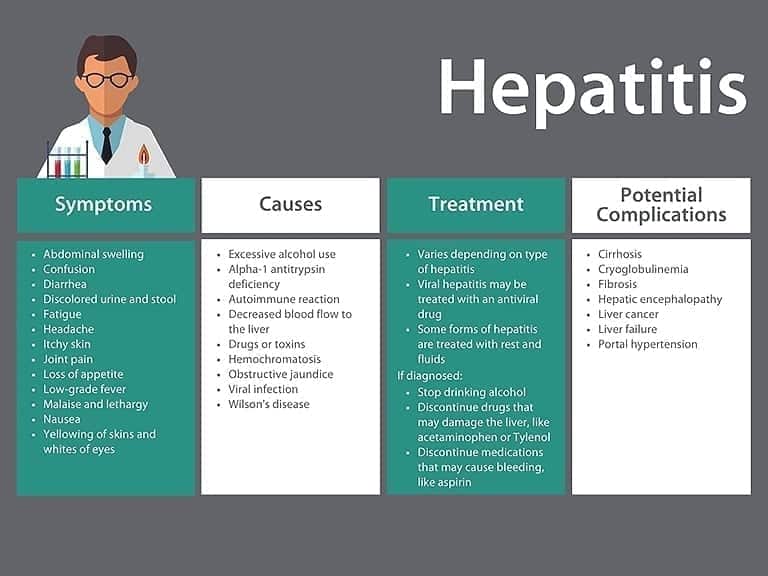Hepatitis (Inflammation)
Did you know that hepatitis simply means inflammation of the liver?
Inflammation is the body’s natural response to injury and an important part of healing or immune response. Think about when you get a cut or injury to your skin. The area around the wound becomes swollen or inflamed. Seeing the swelling is not the only way you experience the inflammatory phase. You may also experience pain, redness, or the wound may feel warm to the touch. Under the skin, your body is hard at work to stop the bleeding and prevent infection. Blood vessels near the wound widen, or dilate, making more room for special healing and repair cells, or cells in the wounded area. These cells remove damaged cells and harmful substances (like bacteria or viruses) and allow the rest of the healing process to continue. Inflammation is essential to fight infection.

Inflammation’s Role in Metabolism
The liver is a complicated organ with many functions. The liver plays a big role in our immune system, making many important proteins needed for proper immune function. A lot of the liver’s functions are metabolic functions, related to our metabolism; these functions allow us to convert food to energy, break down food to basic building blocks needed by our body, and eliminate waste. Some of these metabolic functions require inflammation in order to occur. Similarly, the liver is responsible for filtering toxins, medications, and harmful substances from our blood. When the liver detects something dangerous it works hard to eliminate and clear the substance from our body. This activates an immune response which requires some inflammation. When the inflammation is no longer required there is a system in place to resolve the inflammation and keep the liver healthy.
Inflammation’s Role in Repairing Damaged Cells
The liver recognizes and replaces its own damaged or broken-down cells while still performing all of its vital functions. Just as inflammation is required to get rid of toxic substances, inflammation is part of repairing damaged liver cells. Damaged liver cells and immune cells both send out messages to activate specific repair cells which travel to the site of the injury. These repair cells release something called collagen, a fiber, which stiffens the tissue around the cells, protects the surviving cells and allows healing to occur. In a healthy liver, this repair process is very closely regulated and when no longer needed the extra collagen will disperse and the liver returns to normal.
When Inflammation Becomes Disease
While this controlled inflammation is essential to maintain proper function and balance in the liver, if it becomes dysregulated it drives the progression of liver disease. This diseased inflammation is called hepatitis. We most often hear the word hepatitis when we talk about viral hepatitis, like hepatitis A, B, or C, but viruses are not the only cause of hepatitis. Infection with a virus, overindulging in alcohol or fatty foods, or even our own immune system can trigger a continual inflammatory response in the liver, disrupting the closely regulated cycle of inflammation and healing. When someone has liver disease, their liver enters into a very dangerous cycle. Persistent inflammation sends nonstop signals to the repair cells to continue depositing collagen. The extra collagen stiffens around the tissue like it is supposed to in the healthy liver but, instead of a signal being released to stop the inflammation and discard the extra collagen, the inflammation continues and even more collagen is deposited leading to more stiffening. This is how scars or fibroids, develop in the liver. If left untreated, the scars will continue to replace healthy liver cells, leading to severe scarring known as cirrhosis.
It’s important to speak to your doctor about any possible risk factors for hepatitis or if you’ve experienced symptoms. There are many different causes for hepatitis with varying risks and symptoms. You can review possible symptoms and common causes of liver inflammation here in this infographic, explore more of this website or call the ALF Help Line 1-800-GO-LIVER to learn more.
Last updated on September 6th, 2023 at 03:57 pm